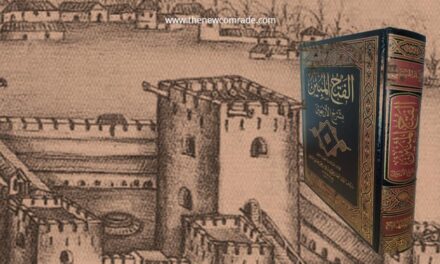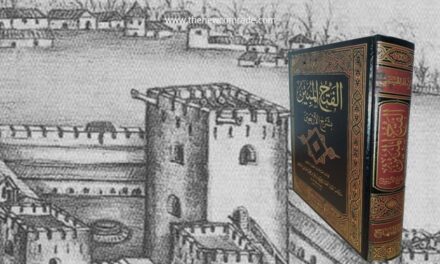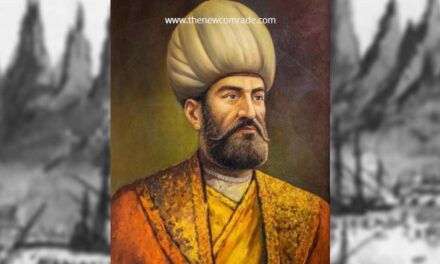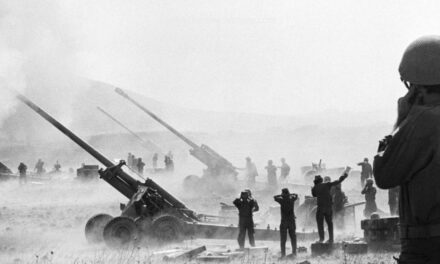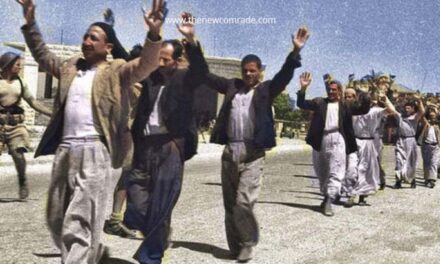
The Chronicles of Omar Fakhruddin Pasha and Qawasem Wars

This is the third part of the article Muslim experiences in resisting imperialism and fascism. Read the First and Second parts here.
Qawasem wars in the Arabian Gulf
Qasimi tribes of the present-day Sharjah’s Ras Al Khaimah region had experiences of countering imperialism. Since the expulsion of Portuguese crusaders from Bahrain and Qatif in 1011 AH/1602 CE, the Qawasem had led successful naval operations against various European colonialists. Similarly, one can find the Mazru’i tribes from the same region doing so in Mombasa and Zanzibar. The rise of English colonialism in the early decades of the 13th century AH and later in the decades of the 18th Century CE increased their resistance through the sea. They were crushed by the bombardment of Ras Al Khaimah in 1235 AH/1819 CE and a couple of Arabian Gulf settlements using South Asian soldiers. Before that, the Qawasem had allied with the first Saudi state1. The first Saudi state was crushed by Mohammed Ali Pasha of Egypt the year before that and this sequence of events is quite revealing about the reach and strategy of the English.
The following year, the English imposed a ‘Maritime treaty’ upon all chieftains of the Southern Arabian Gulf region. Since then, the client-controller arrangement has continued through the changing times and fortunes. It is also worth noting that, alleging them of ‘piracy’ resonates with the usage of ‘terrorism’ at some contemporary events. The usage of South Asians as agents of this control in this region and elsewhere is also noteworthy.

Omar Fakhruddin Pasha and the defense of Madinah Munawwarah
The three sacred cities of Islam- Makkah Mukarramah, Madinah Munawwarah and Quds Sharif form the center of gravity in the world of most Muslims. Reverence, longing, and loyalty towards the causes of these cities, reflect their religiosity and camaraderie with the community.
One such instance where such an unflinching loyalty was demonstrated was during the siege of Madinah Munawwarah during World War-I by the English-backed troops led by “Lawrence of Arabia”, Husayn bin Ali al-Awn- the renegade governor of Makkah Mukarramah, Nuri al-Sa’id- mentioned earlier in the context of Libya and later PM of Iraq, Ronald Storrs and Henry Mc Mahon. Many years of efforts by the English to break a section of Arabs with the Ottoman Sultanate, and thereby colonize the region through their offices in Cairo and Baghdad, saw success at the outset of World War-I in the name of the ‘Grand Arab revolt’ under Husayn bin Ali. In return, the English had promised a dominion extending Mesopotamia, Levant and Arabia under him and his sons.
Against such a backdrop, Ottoman Sultan Mehmet-V formed the ‘Hejaz Expeditionary force’ to specifically defend Makkah Mukarramah, Madinah Munawwarah and the Hejaz railway in Ramadan 1334 AH/July 1916 CE. Lieutenant-General Omar Fakhruddin Pasha was made its head. Ali bin Jaber al Zayd (Ali Haydar Pasha), the governor of Makkah, formally proclaimed the plots of Husayn bin Ali and the English government behind him the next month. The Hejaz force was exceptionally valiant in the face of the banditry of Husayn bin Ali’s force, especially those isolated groups that defended the Hejaz railway in the face of heavy attacks.
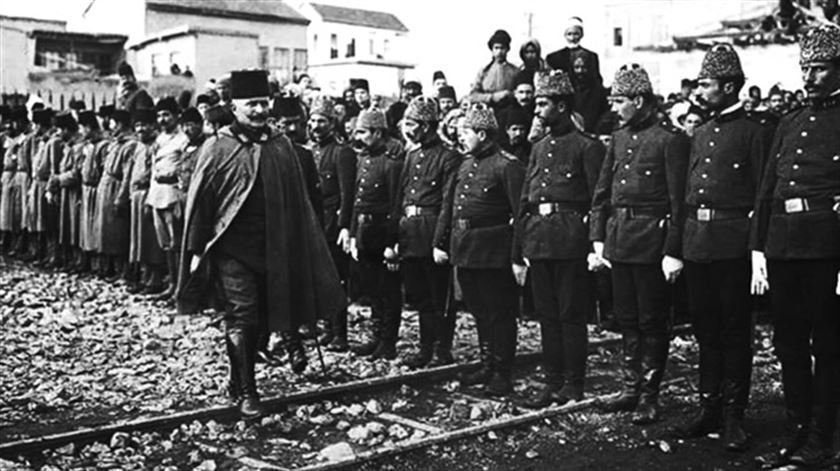
Meanwhile, the Ottoman legion was being defeated in World War- I and was losing their territories by leaps and bounds. The Hejaz force stood fast to defend Madinah Munawwarah from Jamada 1335 AH/March 1917 CE onwards. The various relics and manuscripts of Madinah Munawwarah were transferred to Istanbul to avoid them falling into the hands of the imperialists2. Governor Ali bin Jaber also left Hejaz, leaving Omar Fakhruddin Pasha alone to handle the situation. In Ramadan 1336 AH/July 1918 CE, Sultan Mehmet-V passed away, and an English client Mehmet-VI took over the reins of power, and the defeat was complete.
Omar Fakhruddin Pasha refused to surrender despite orders from the Ottoman Minister of War and dismissal by the new Sultan. He and his troops faced hunger and diseases during that siege, and he held on despite all of the mishaps. He surrendered only well after World War-I was over, in Rabiul Awwal 1337 AH/January 1919 CE. He was a prisoner of war for two years after that in Malta. He then went to join the ongoing fight against Allied troops in Anatolia. Later he served as the Ambassador of Turkey in Kabul up to 1345 AH/1926 CE.
References
- Historical Dictionary of the Gulf Arab States, Malcolm C. Peck
- https://www.islam21c.com/islamic-thought/history/defence-fahreddin-pasha-defendermadinah/
Author Profile

Munawwar Kavungal
Political analyst, Freelance translator.





